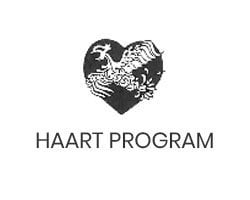"Client-centered" & "individualized care" applied moment to moment, not just described in a pamphlet....

Humanistic or client-centered treatment itself focuses on the importance of all human experience and the utilization of positive regard and acceptance as a key to promoting and supporting long-term positive change. It is the person in treatment, not the practitioner, who has the capacity for healing. Our goal is to help create a relationship that promotes this healing.
Humanistic practice is at our core at HAART. For example, Rollo May, one of the early founders of what would become existential/humanistic psychology, provided some of our earliest staff training and helped sculpt, both directly and indirectly, this treatment philosophy.
Opioids, whether it be fentanyl, heroin, morphine, opium, oxycodone, or any other synthetic analgesic or natural variant, provide time-limited relief from both physical and emotional suffering. Opioids have an implicit utility and are unmatched to this end. Clients usually present for treatment when the circumstances and consequences associated with their own self-medication with opioids becomes too harmful to sustain. This problem relationship with opioids often develops after physiological dependence manifests, an experience that occurs beyond conscious choice. Our bodies simply adapt to having opioids on board, and then requires them for a new normal level of functioning. However, the illicit or illegal nature of some opioids leaves users unable to seek out and consume enough quantities while maintaining functionality. Further dangers that arise with an opioid use disorder include the inadvertent use of adulterated substances, infections, overdose, incarceration, poly-substance exposure, abuse or dependence, exposure to street violence, and death.
We provide consistent access to medication and therapy and pride ourselves in offering a “choice” whenever possible. We strive to give our clients the benefit of the doubt, acknowledge progress, and provide and reward successful efforts to the extent county, state and federal regulations allow. We also strive to provide nonjudgmental harm-reduction-based treatment for those who continue to use illicitly. We exercise and maintain this treatment philosophy by seeking out and retaining professional, invested clinicians who often integrate private practice and other areas of expertise.

